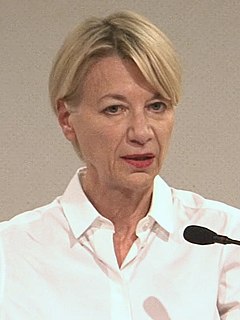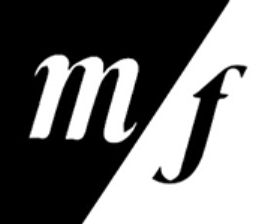Related Research Articles
Feminist film theory is a theoretical film criticism derived from feminist politics and feminist theory influenced by Second Wave Feminism and brought about around the 1970s in the United States. With the advancements in film throughout the years feminist film theory has developed and changed to analyse the current ways of film and also go back to analyse films past. Feminists have many approaches to cinema analysis, regarding the film elements analyzed and their theoretical underpinnings.
Film theory is a set of scholarly approaches within the academic discipline of film or cinema studies that began in the 1920s by questioning the formal essential attributes of motion pictures; and that now provides conceptual frameworks for understanding film's relationship to reality, the other arts, individual viewers, and society at large. Film theory is not to be confused with general film criticism, or film history, though these three disciplines interrelate.

Jacques Marie Émile Lacan was a French psychoanalyst and psychiatrist who has been called "the most controversial psycho-analyst since Freud". Giving yearly seminars in Paris from 1953 to 1981, Lacan’s work has marked the French and international intellectual landscape, having made a significant impact on continental philosophy and cultural theory in areas such as post-structuralism, critical theory, feminist theory and film theory as well as on psychoanalysis itself.
Psychoanalysis is a set of theories and therapeutic techniques that deal in part with the unconscious mind, and which together form a method of treatment for mental disorders. The discipline was established in the early 1890s by Austrian neurologist Sigmund Freud, who developed the practice from his theoretical model of personality organization and development, psychoanalytic theory. Freud's work stems partly from the clinical work of Josef Breuer and others. Psychoanalysis was later developed in different directions, mostly by students of Freud, such as Alfred Adler and his collaborator, Carl Gustav Jung, as well as by neo-Freudian thinkers, such as Erich Fromm, Karen Horney, and Harry Stack Sullivan.
Psychoanalytic literary criticism is literary criticism or literary theory which, in method, concept, or form, is influenced by the tradition of psychoanalysis begun by Sigmund Freud.
Gender studies is an interdisciplinary academic field devoted to analysing gender identity and gendered representation. Like Queer studies and Men's studies, it originated in the interdisciplinary program women's studies. Its rise to prominence, especially in Western universities after 1990, coincided with the rise of deconstructionism. Disciplines that frequently contribute to Gender studies include sexuality, gender and sexuality in the fields of literature, linguistics, human geography, history, political science, archaeology, economics, sociology, psychology, anthropology, cinema, musicology, media studies, human development, law, public health and medicine. It also analyzes how race, ethnicity, location, class, nationality, and disability intersect with the categories of gender and sexuality.
Psychoanalytic film theory is a school of academic thought that evokes the concepts of psychoanalysts Sigmund Freud and Jacques Lacan. The theory is closely tied to Critical theory, Marxist film theory, and Apparatus theory. The theory is separated into two waves. The first wave occurred in the 1960s and 70s. The second wave became popular in the 1980s and 90s.
Luce Irigaray is a Belgian-born French feminist, philosopher, linguist, psycholinguist, psychoanalyst and cultural theorist who examined the uses and misuses of language in relation to women. Irigaray's first and most well known book, published in 1974, was Speculum of the Other Woman (1974), which analyzes the texts of Freud, Hegel, Plato, Aristotle, Descartes, and Kant through the lens of phallocentrism. Irigaray is the author of works analyzing many thinkers, including This Sex Which Is Not One (1977), which discusses Lacan's work as well as political economy; Elemental Passions (1982) can be read as a response to Merleau‐Ponty's article “The Intertwining—The Chiasm” in The Visible and the Invisible, and in The Forgetting of Air in Martin Heidegger (1999), Irigaray critiques Heidegger's emphasis on the element of earth as the ground of life and speech and his "oblivion" or forgetting of air.
Feminist theory is the extension of feminism into theoretical, fictional, or philosophical discourse. It aims to understand the nature of gender inequality. It examines women's and men's social roles, experiences, interests, chores, and feminist politics in a variety of fields, such as anthropology and sociology, communication, media studies, psychoanalysis, political theory, home economics, literature, education, and philosophy.

Jane Anne Gallop is an American professor who since 1992 has served as Distinguished Professor of English and Comparative Literature at the University of Wisconsin–Milwaukee, where she has taught since 1990.
Nancy Julia Chodorow is an American sociologist and professor. She can be categorized as a Humanistic psychoanalytic sociologist and Psychoanalytic feminist. Throughout her career, she has been influenced by psychoanalysts Sigmund Freud and Karen Horney, as well as feminist theorists Beatrice Whiting and Phillip Slater. She is a member of the International Psychoanalytical Association, and is a frequent speaker at their congress meetings. She began her career as a professor of Women's studies at Wellesley College in 1973. In 1974, she moved California where she taught at the University of California, Santa Cruz until 1986. She then went on to spend many years as a professor in the departments of sociology and clinical psychology at the University of California, Berkeley until she resigned in 1986. Later, she began her career teaching psychiatry at Harvard Medical School/Cambridge Health Alliance. Chodorow is often described as a leader in feminist thought, especially in the realms of psychoanalysis and psychology.
Barbara Ellen Johnson was an American literary critic and translator, born in Boston. She was a Professor of English and Comparative Literature and the Fredric Wertham Professor of Law and Psychiatry in Society at Harvard University. Her scholarship incorporated a variety of structuralist and poststructuralist perspectives—including deconstruction, Lacanian psychoanalysis, and feminist theory—into a critical, interdisciplinary study of literature. As a scholar, teacher, and translator, Johnson helped make the theories of French philosopher Jacques Derrida accessible to English-speaking audiences in the United States at a time when they had just begun to gain recognition in France. Accordingly, she is often associated with the "Yale School" of academic literary criticism.
Shoshana Felman is an American literary critic and current Woodruff Professor of Comparative Literature and French at Emory University. She was on the faculty of Yale University from 1970 to 2004, where in 1986 she was awarded the Thomas E. Donnelly Professorship of French and Comparative Literature. She specializes in 19th and 20th century French literature, psychoanalysis, trauma and testimony, and law and literature. Felman earned her Ph.D. at the University of Grenoble in France in 1970.

Joan K. Copjec is an American philosopher, theorist, author, feminist, and prominent American Lacanian psychoanalytic theorist. She is Professor of Modern Culture & Media at Brown University.
Lacanianism or Lacanian psychoanalysis is a theoretical system that explains the mind, behaviour, and culture through a structuralist and post-structuralist extension of classical psychoanalysis, initiated by the work of Jacques Lacan from the 1950s to the 1980s. Lacanian perspectives contend that the world of language, the Symbolic, structures the human mind, and stress the importance of desire, which is conceived of as endless and impossible to satisfy. Contemporary Lacanianism is characterised by a broad range of thought and extensive debate between Lacanians.
Feminist art criticism emerged in the 1970s from the wider feminist movement as the critical examination of both visual representations of women in art and art produced by women. It continues to be a major field of art criticism.
Bruce Fink is an American Lacanian psychoanalyst and a major translator of Jacques Lacan. He is the author of numerous books on Lacan and Lacanian psychoanalysis, prominent among which are Lacan to the Letter: Reading Écrits Closely, The Lacanian Subject: Between Language and Jouissance (1995), Lacan on Love: An Exploration of Lacan's Seminar VIII and A Clinical Introduction to Lacanian Psychoanalysis: Theory and Technique.
Teresa Brennan was an Australian feminist philosopher and psychoanalytic theorist best known for her posthumous book, The Transmission of Affect (2004). Before her death, Brennan was Schmidt Distinguished Professor of the Humanities at Florida Atlantic University, where she founded a PhD program for Public Intellectuals.

m/f: a feminist journal was a British feminist periodical published from 1978 until 1986. The magazine published theoretical and political reviews, discussions, and articles about the women's movement, particularly in relation to socialist and feminist politics.
Jennifer Friedlander is an American cultural studies scholar.
References
- 1 2 Karin Lesnik-Oberstein. "Adams, Parveen". In Elizabeth Kowaleski-Wallace (ed.). Encyclopedia of Feminist Literary Theory.
- ↑ "Corpus: Mary Kelly interviewed by Maria Walsh". Art Monthly. May 2011.
- ↑ Julian Wolfreys (2006). Modern British and Irish Criticism and Theory: A Critical Guide: A Critical Guide. Edinburgh University Press. p. 172. ISBN 978-0-7486-2680-9.
- 1 2 'Consortium Core Faculty Biographies', The London Consortium Handbook 2009/10, p.4
- ↑ "Visiting Fellowships".